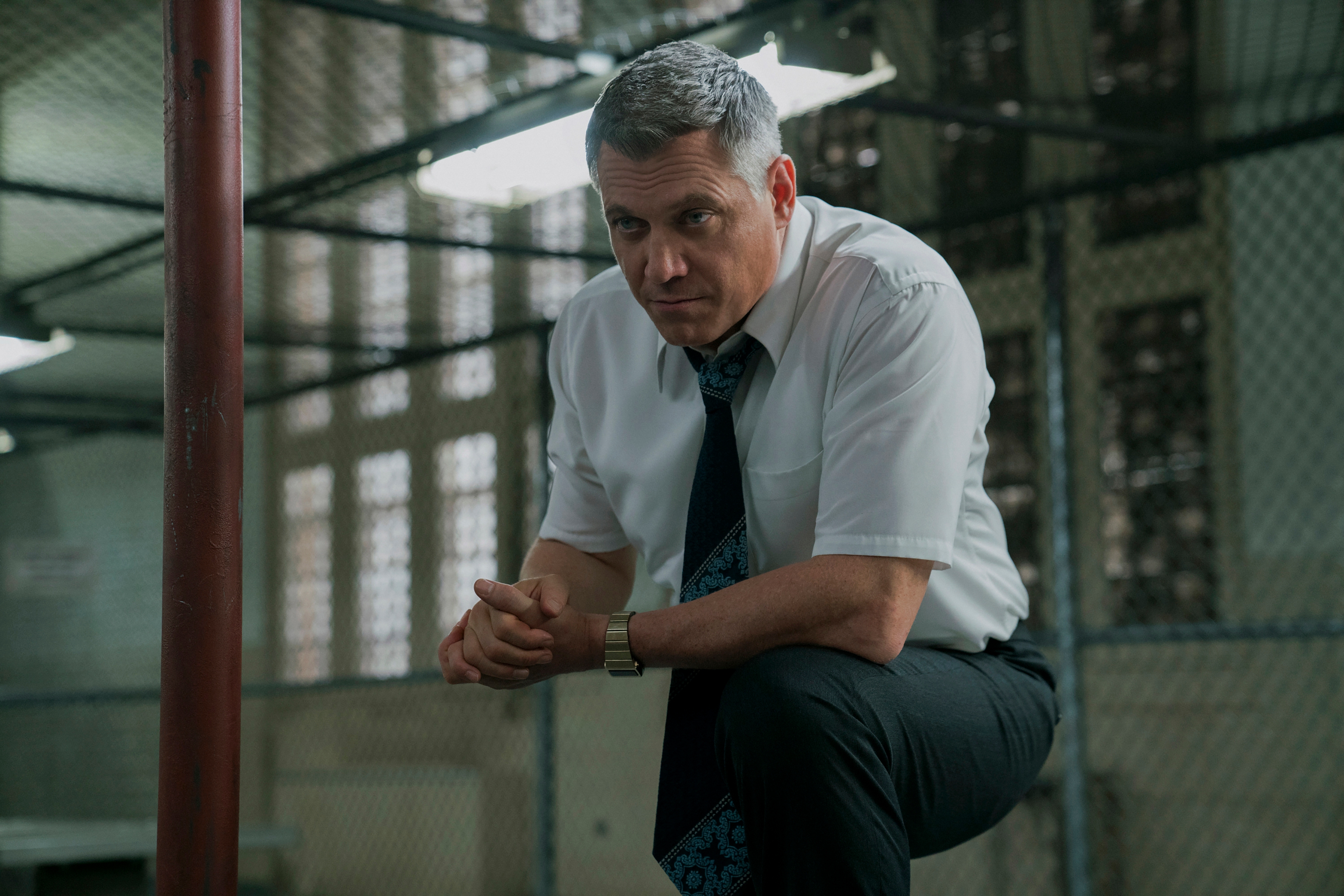In its ongoing investigation, uncertainty is Mindhunter's greatest ally

The late great Halt And Catch Fire famously took a while to actually become great. It got there because its writers figured out a new way to create personal and professional dilemmas for its characters. Rather than present black-and-white choices in which someone was clearly in the right and someone else in the wrong, or follow the shades-of-gray antihero-drama approach where the interest lies in studying why people do the wrong thing to begin with, Halt took a third route: It constructed scenarios in which the protagonists faced two equally compelling options and had to choose between them with no clear-cut right answer at all. For example, should they gut the creative innards of their new computer, lowering the price tag and guaranteeing competitiveness in the marketplace at the expense of what made the product special? Or should they keep their innovative interface intact and take a shot at something great, risking not just their livelihoods but those of everyone who worked for them in the process? Each path had its partisans, each argument was persuasive, and in the end they had no more idea of what would be best than any of us do when we face turning points in our own real lives. The show’s total lack of hand-holding for either its characters or its audience made for riveting viewing.
I thought about this a lot while watching this episode of Mindhunter. Focused almost exclusively on the murder and mutilation case that Bill Tench, Holden Ford, and local cop Mark Ocasek started working in the previous installment, it’s the story of three investigators hashing things out as they go, testing competing theories of the crime with no slam dunks in sight. It’s not about winnowing out false leads until the one true answer is found—even though they make an arrest by the end of the hour, the exact circumstances of the killing remain a mystery. Rather, it’s about trying to figure things out in a field, and a world, where there are no sure things. It’s a very different way to write a procedural.
If you’re looking for what makes this work, start with Detective Ocasek. Altoona, Pennsylvania’s Finest isn’t the best cop on the beat by any stretch of the imagination. A quiet, church-going type, he’s too soft on suspects and too eager to clear his beloved community of guilt for the horrible crime that’s been committed there. Bill and Holden spend half the episode shooting him dirty looks over every minor screw-up. But he’s not the stock character he might be on other shows—the local yokel whose ignorance, incompetence, and naîveté serve as an example of what not to do that the more seasoned investigators must overcome. He’s just a bit out of his depth with a case this extraordinary, is all. And despite their impatience with him, Ford and Tench value his insights into the personalities and histories of the suspects, as well as the community ties that enable him to access information they wouldn’t even think of looking for, much less be able to find on their own. When they take him out for beers to shoot the shit about the case, they’re not just doing it to be nice—they want to know what he thinks, because they’re not sure themselves.
 Keep scrolling for more great stories.
Keep scrolling for more great stories.
